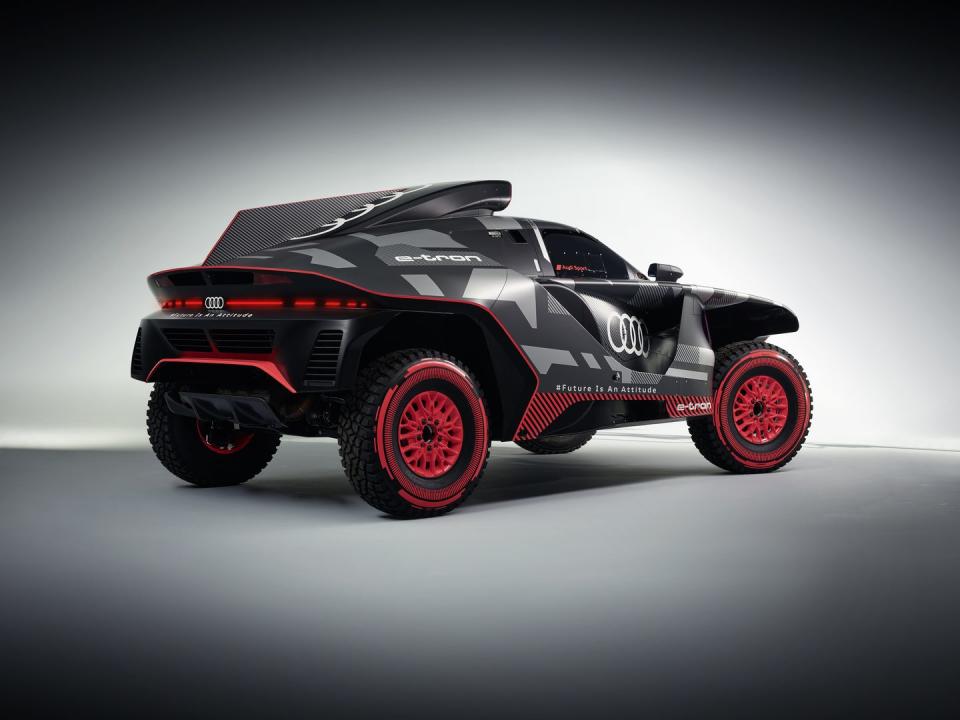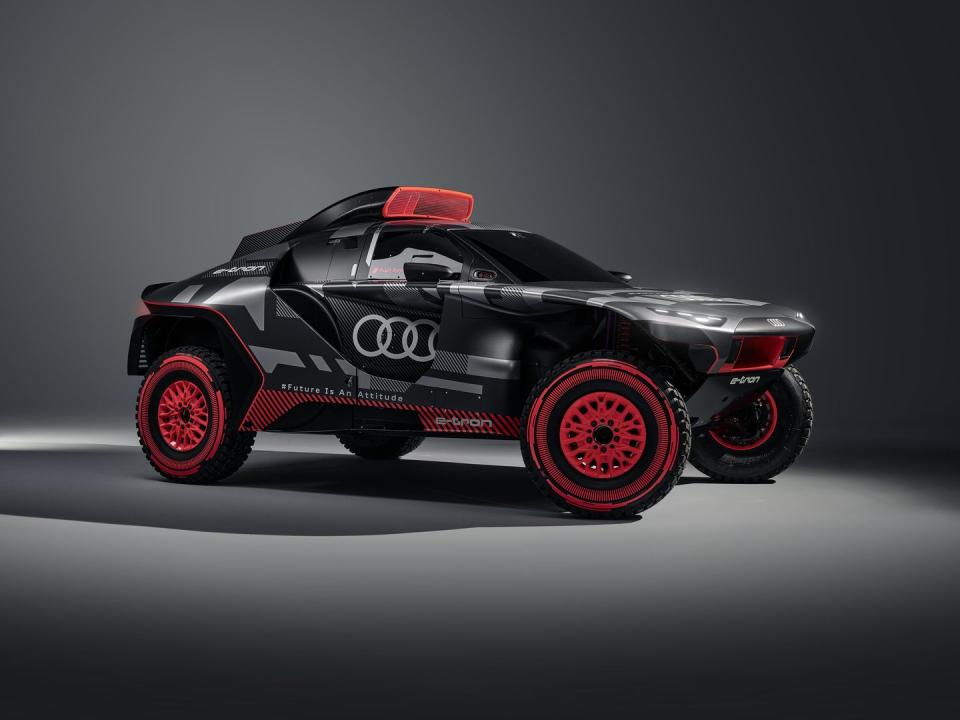671-HP Audi RS Q e-tron Is an Electrified Dakar Rally Racer

Audi is withdrawing from Formula E and DTM to focus on Le Mans and Dakar, with the RS Q e-tron set to enter the 2022 Dakar Rally early next year.
The RS Q e-tron borrows two electric motors from Audi’s Formula E program with one on each axle, good for a combined 671 horsepower.
The 50.0-kWh battery will be charged by a range-extender gasoline engine, the turbocharged 2.0-liter inline-four found in Audi’s DTM racer from the 2020 season.
Audi was a dominant force in Group B rally in the mid-1980s, earning two manufacturers’ championships with the revolutionary all-wheel-drive Quattro before switching its attention to the 24 Hours of Le Mans in 2000, winning 13 times in the next 15 years and becoming the first winner with a hybrid powertrain. Audi aims to check another item off of its motorsports bucket list by conquering the grueling Dakar Rally with this hybridized off-road beast called the RS Q e-tron.

The RS Q e-tron, which will compete in the 2022 Dakar Rally in January, uses a range-extender setup that borrows bits and pieces from Audi’s other motorsports programs. If you own an EV in the U.S., you’ll know that it can be pretty hard to find chargers, and unsurprisingly it’s even trickier to spot one in the middle of the desert. As a result, the vehicle’s 50.0-kWh battery is charged instead by a gasoline engine that acts as a generator. But it's not just any gas engine, it's the turbocharged 2.0-liter inline-four from the Audi RS5 Turbo DTM, Audi’s last entry into DTM before exiting the series after the 2020 season.

Power from the battery is then sent to two electric motors, with one on each axle, taken from Audi’s Formula E program. Only minor changes differentiate the motors from the units in Audi’s e-tron FE07 car, which propelled Lucas di Grassi to a Formula E win in Puebla, Mexico earlier this year. According to Audi, the total system output is 671 horsepower, although that could end up being restricted by regulations.
The RS Q e-tron is a key part of Audi’s new motorsports direction, announced last year, which sees it leave Formula E after seven seasons to concentrate on returning to Le Mans and contesting the Dakar Rally. Three RS Q e-trons will compete in the demanding event in January, and Audi has enlisted drivers including Stéphane Peterhansel, the most successful Dakar driver ever with 14 victories, Carlos Sainz, two-time rally champ and three-time Dakar winner, and Mattias Ekström, who holds two DTM titles and one World Rallycross championship. The Dakar Rally will last two weeks, with daily stages that can be nearly 500 miles long, and will serve as a major test of the durability of Audi’s electrified drivetrain.
You Might Also Like

 Yahoo Finance
Yahoo Finance 